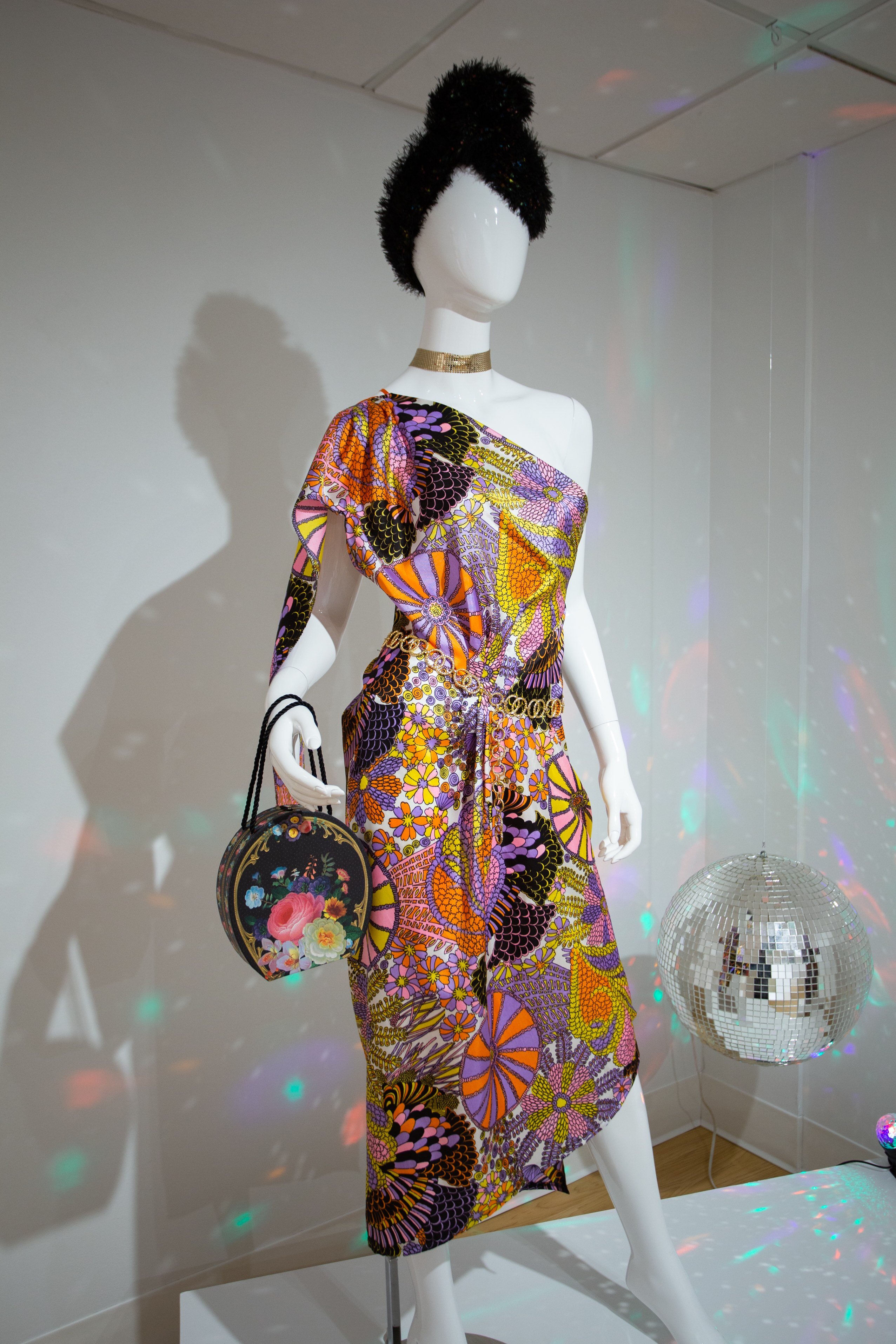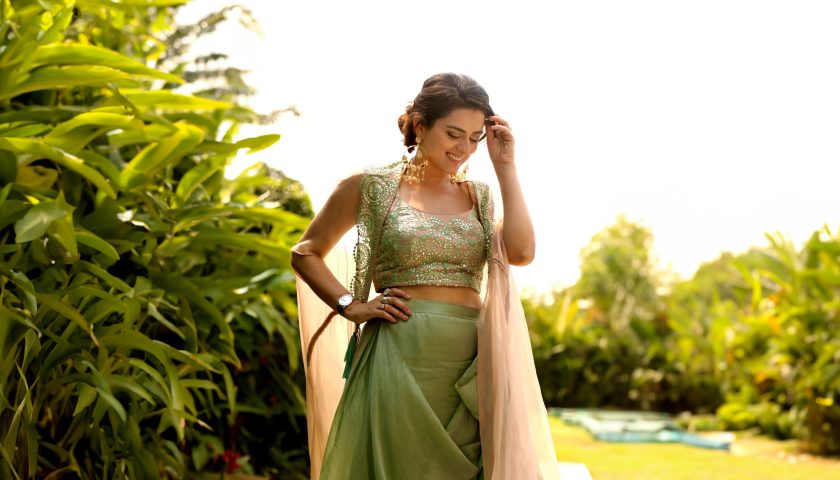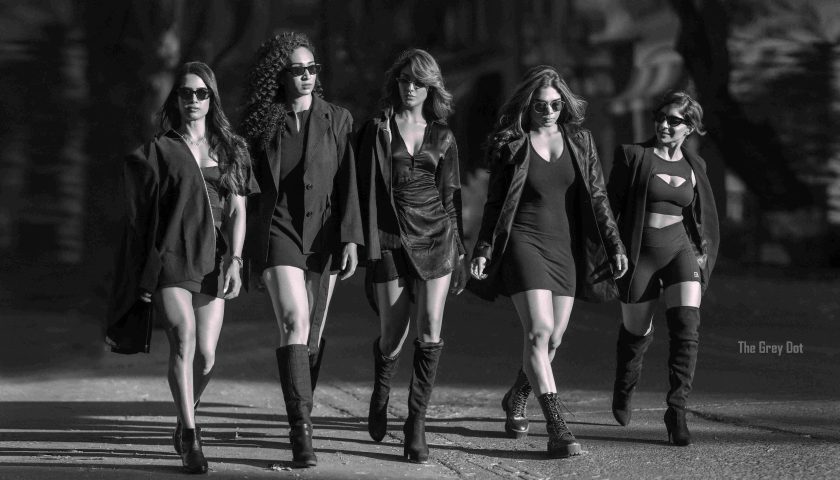If you have, show it, won’t you? When it comes to a creative fashion design and production scene, Grand Rapids has it. The area serves as a starting point for many international designers and fashion designers and is home to over 10 different clothing and accessory manufacturers. Innovative parts are designed, sourced and manufactured right here in the West Michigan region. Many of these manufacturers and artisans are also focused on sustainability and moving away from the waste and harmful carbon footprint that the fashion industry is known for.
Lori A. Faulkner is chair of fashion studies and associate professor for the Pamella Roland DeVos School of Fashion at Ferris State University’s Kendall College of Art and Design (KCAD). Faulkner wrote the curriculum for the program, based on her education and experiences as a designer in the fashion industry.
KCAD students within the School of Fashion follow a four-year Bachelor of Fine Arts Degree in Fashion Studieswith an opportunity to study in Fashion Institute of Technology in NYC. Faulkner says this degree is “designed to immerse the student in the study of the fashion industry and practices, complementing the supporting studios in foundation art and design courses and general education courses, for a well-rounded and well-rounded education.”
Students learn about sourcing trends, fabrics, applying design elements and principles, finding the balance between aesthetics and functionality, sketching designs and illustrations, tailoring, modeling, retail buying, sustainability, fashion show production and more. Students also have access to fashion labs with industrial machinery used for construction, large design tables, subscriptions to trend, fabric and style services, and AV technology for demonstrations and photography of their work. Near the end of their studies, students plan their annual transition fashion show, highlighting original collections. In March 2022, students collaborated on designing costumes for Jumpstart Production IN Grand Rapids Ballet.
In addition to the knowledge and experience gained locally, students are able to travel to major cities such as NYC, LA and abroad on donor-sponsored fashion research experiential trips to London, Paris, Hong Kong, Beijing, Shanghai , Melbourne and Sydney.
Faulkner describes the regional fashion scene as unique, fueled by these creative students and experienced industry professionals. “People are surprised to hear that there are more than 10 clothing and accessory manufacturers in our area,” she says.
Each year, Faulkner speaks about fashion and sustainability at various venues including the Grand Rapids Public Museum, Grand Rapids Art Museum, Kent District Library and other local organizations.
 Lori Faulkner Sabbatical Show, Photo courtesy of KCAD“Creating my sustainable fashion collection is part of my job,” says Faulkner. “The work was shown at the Alluvium Gallery at KCAD last February and one of my ensembles is currently on display at Fashion and nature exhibition at the Grand Rapids Public Museum,” she said.
Lori Faulkner Sabbatical Show, Photo courtesy of KCAD“Creating my sustainable fashion collection is part of my job,” says Faulkner. “The work was shown at the Alluvium Gallery at KCAD last February and one of my ensembles is currently on display at Fashion and nature exhibition at the Grand Rapids Public Museum,” she said.
The industry is witnessing a growing trend in sustainability, something Faulkner says will be crucial to how clothing is made in the future. Within the sustainable fashion class, students learn everything from responsible sourcing, new design practices, and dyeing and dyeing practices, to carbon footprint reduction, upcycling, recycling, and a focus on consumer education.
Outside of the classroom, the focus on sustainability is also important, with many local producers creating right here in the West Michigan region, including Public topica local manufacturer of refurbished accessories.
Faulkner says it’s important to use local designers and fashion professionals to reinvest in the community and also reduce the carbon footprint of transporting clothes to stores.
For Sarah Saunders, who goes by the name Sarah Jo, owner of No Clothing, she began learning to sew as a teenager growing up in Alpena. She began selling her crafts at local markets and online through Etsy in 2008. Her love of sewing evolved into a full-time job creating unique clothing in 2011. Jo Clothing offers comfortable and casual clothing made of soft and durable fabrics.
Custom made designs are also customizable, something Sarah Jo likes to create unique for each person. Making fashion to order, versus fast fashion in bulk, is a contrast to much of the industry, “built on waste and exploitation,” says Sarah Jo. “It’s not sustainable to consume as much as we do,” she says. “We need to buy less, fix what we have and invest in quality parts that will last.”
For fellow designer Ashley Trieu, sustainable fashion change is still happening on a much smaller scale than it should. The Grand Rapids native began curating and selling vintage clothing online during her senior year of high school. She became a designer, seamstress and business owner when she started Iconoclasp in 2011, offering durable unisex clothing for men and women designed and manufactured in Grand Rapids. In 2021, she and her partner, Theo Jones, expanded the business, launching Ethos 33.
![]() Photo courtesy of Iconoclasp and Ethos 33
Photo courtesy of Iconoclasp and Ethos 33
“With Iconoclasp, I grew creatively and personally, which inspired a desire to create more responsibly and within a different aesthetic,” says Trieu. “Ethos 33 evolved from that desire and the perfect formula came out – designing with luxurious and durable materials that influenced and satisfied my growth as an artist,” she says.
The expansion of the business created some changes. “Through Ethos 33, I also left the life of solopreneurship by co-founding it with my partner, hiring my former intern and entering this new venture as part of a creative team,” says Trieu.
For Trieu, safety and durability are key considerations when sourcing materials for their designs. When she ordered the samples for the collection, she noticed a disclaimer that the materials could cause a number of health concerns. “It sent me a shock and a realization that we could not consider these materials as part of an elevated lifestyle if [they] there was serious potential health harm to our customers, us as creators, textile manufacturers and our environment,” she says.
“This led me to months of research about the harm the fashion industry causes and fortunately, to wonderful innovations in the textile industry that went against the status quo,” she says. “These materials were quite luxurious and matched the other core elements of our brand. For example, prickly pear cactus skins with recycled ocean wrappers [are] negative carbon [and] water and energy efficient in production.”
Trieu says the high-end lifestyle brand found bamboo and certified fibers that not only feel nice on the skin, but are anti-microbial, biodegradable and ethically and responsibly produced.
She hopes that Ethos 33’s rigorously vetted materials show that there can be a healthier and more thoughtful supply chain within the fashion industry.
“We have obtained climate-friendly fabrics with processes that create a carbon sink, reversing climate damage and increasing biodiversity,” says Trieu. “We want to set an example that land protection, fair compensation and inclusive conditions, of safety and working conditions should be the standard. Our brand mission is to represent conscious entrepreneurship in hopes of inspiring more of it.”
While it is a positive change that small businesses, local manufacturers and artisans are embracing slow fashion, which approaches fashion with an awareness aspect. The goal is to advocate for the purchase of better quality clothing, on the other hand, that lasts longer than cheaply made and quickly produced items. Trieu says it’s important for larger fashion corporations to follow suit.
“Humans have caused so much damage to our natural resources and it’s important that we step up and represent a more holistic approach to creation,” she says. This provides an opportunity for everyone within the industry. “Sustainability is an investment towards the preservation of our planet and our collective,” says Trieu.
Our three-part series on West Michigan’s creative sectors is made possible through the Grand Rapids Chamber and the Michigan Office of Film and Digital Media’s Creative Industry Rebound Grant.
Through our solutions journalism storytelling platform, we seek to illustrate how West Michigan’s creative community is responding to their current challenges while our creative sector builds bridges so that future opportunities can flourish here.
Sarah lived briefly in Grand Rapids years ago before moving back to Lansing, but the love of West Michigan never left her heart. Through her coverage of small businesses, arts and culture, dining and all things handmade, she’s committed to convincing anyone and everyone — just how great the Great Lakes State is. Sarah received her BA in Journalism and Professional Communication. You can find him at a record store, at a local concert, or eating a lot of dessert at a bakery. If by chance, she is not in any of those places, you can contact her at [email protected]




